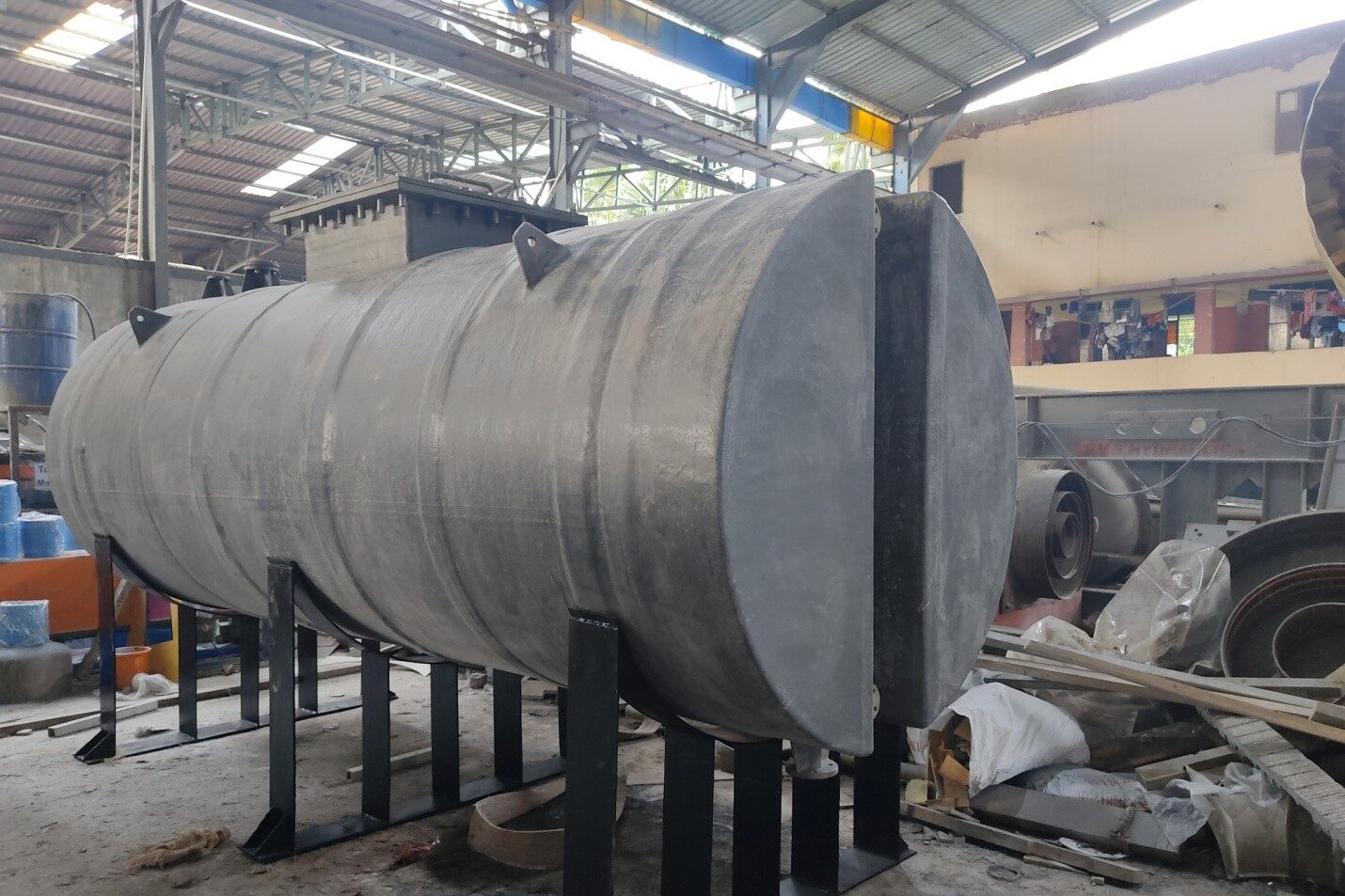Benefits of using FRP Oil Storage Tank:
Using FRP (Fiber-Reinforced Plastic) tanks for oil storage offers several benefits due to the unique properties of this material. Here are some key advantages of employing FRP tanks for oil storage applications:
- Excellent chemical resistance: FRP tanks are highly resistant to a wide range of chemicals, including crude oil, refined petroleum products, and various additives used in the oil industry. This resistance ensures a longer service life and reduced maintenance costs compared to traditional metallic tanks, which are susceptible to corrosion in such environments.
- Corrosion resistance: FRP tanks are not susceptible to corrosion caused by the corrosive nature of crude oil and its components, such as sulfur compounds, salts, and acids. This resistance to corrosion can significantly extend the lifespan of the storage tanks and reduce the risk of leaks or failures.
- Low maintenance: FRP tanks are resistant to fouling, scaling, and buildup, which can reduce the need for frequent cleaning and maintenance. This translates into lower operational costs and fewer disruptions in the oil storage facility.
- Lightweight and high strength: FRP tanks are lightweight yet possess excellent strength-to-weight ratios, making them easier to install and handle compared to metallic tanks of similar strength. This characteristic can also reduce installation costs and enable the use of smaller support structures.
- Versatility: FRP tanks can be manufactured in a variety of sizes, shapes, and configurations, allowing for customization to meet the specific requirements of oil storage facilities. They can also be designed to handle a wide range of pressures and temperatures.
- Fire resistance: FRP tanks can be designed to meet fire-resistant specifications, making them suitable for use in areas with high fire risk or where fire safety is a critical concern.
- Low thermal conductivity: FRP tanks have low thermal conductivity, which can help maintain the temperature of the stored oil, reducing heat loss or gain, and improving overall storage efficiency.
- Seamless construction: FRP tanks can be manufactured as seamless structures, reducing the risk of leaks and minimizing potential weak points compared to welded or riveted metallic tanks.
- Environmental compliance: FRP tanks can be designed to meet stringent environmental regulations and standards, minimizing the risk of leaks or spills that could lead to environmental contamination.
While FRP tanks offer numerous advantages for oil storage applications, it’s crucial to follow proper design, installation, and maintenance practices to ensure their safe and efficient operation in these critical applications




